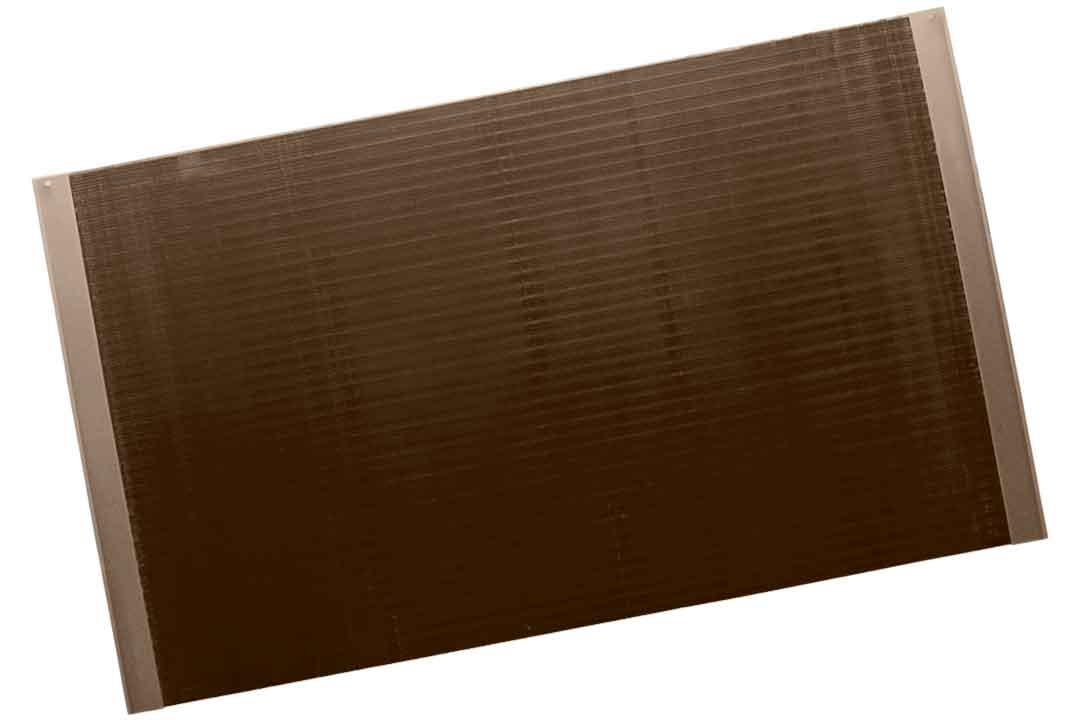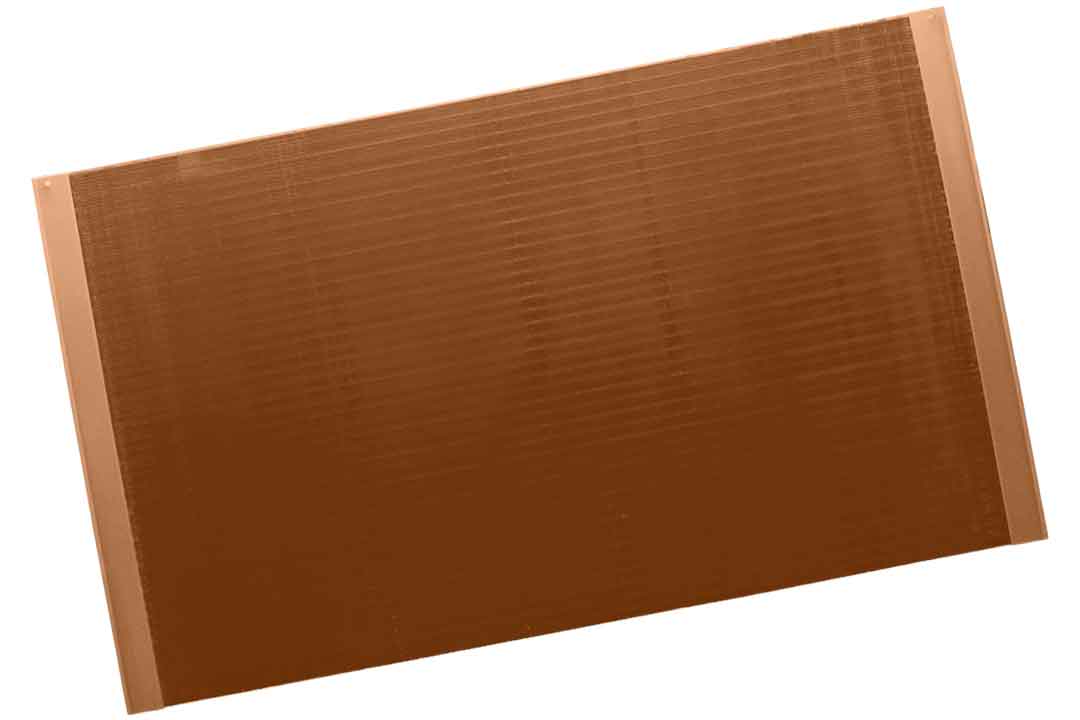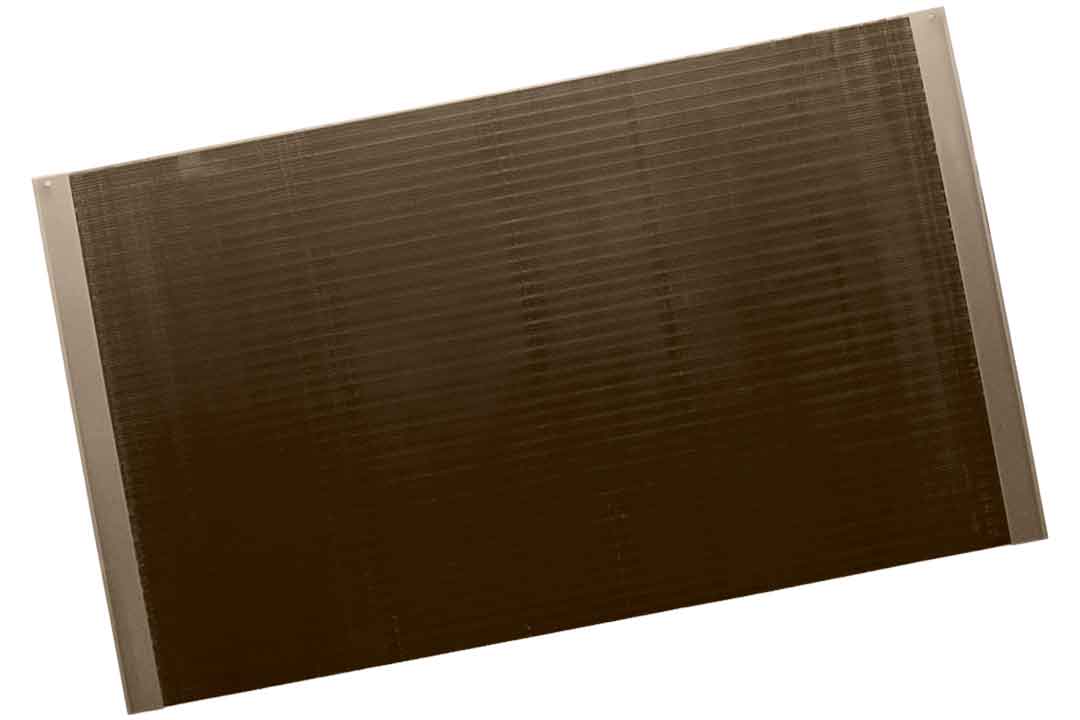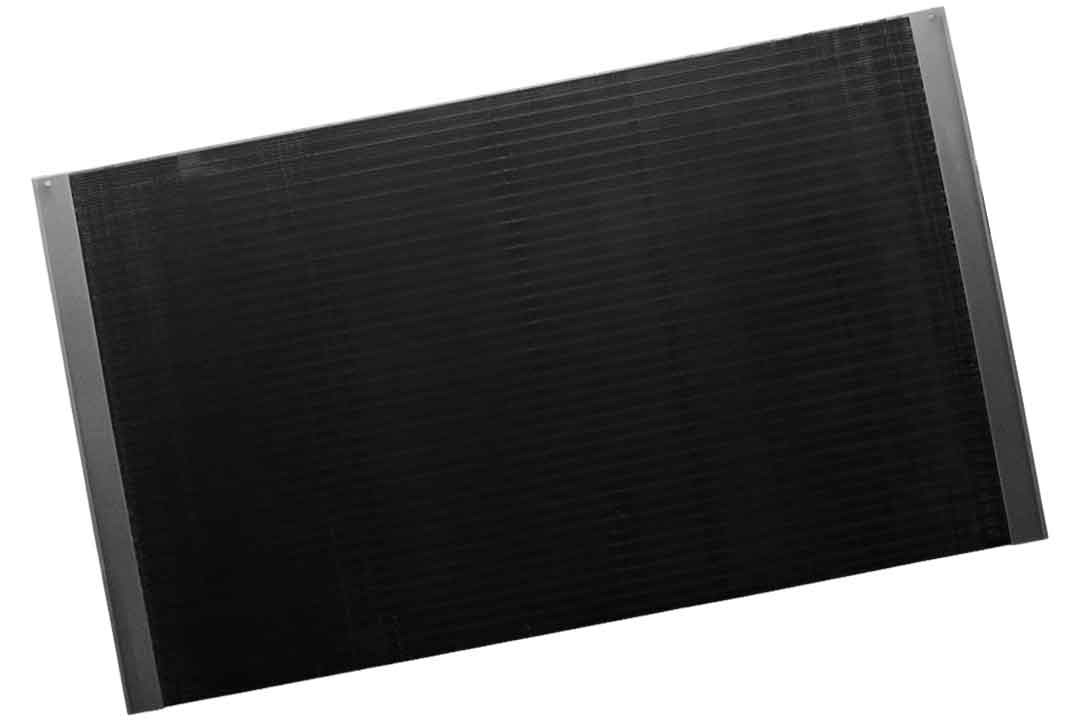Corrosion Resistant Coil Coatings
Extend the life of your HVAC system with one of our coating options
Fins on evaporator and condenser coils are made using aluminum, which is relatively corrosion resistant even without any type of coating. However, the harsh conditions under which Specific Systems® units are placed often requires additional protection. In order to meet these needs, Specific Systems® makes available numerous coil coating options, each with unique and energy saving traits.
Further, any of our systems can be ordered with copper fins in addition to the copper tubes, providing greater resistance to corrosive contaminants.

Available Options
Contact Specific Systems® for additional available options for your application.
At Specific Systems®, we have over 40 years of experience servicing the harshest environments on the planet. Through that time, we have used and applied several different coil coatings, finally working with our suppliers to develop our own combination that now serves as the standard for all Specific Systems® HVAC units.
Our coating starts with a seven-stage cathodically-applied epoxy that is proven to withstand aggressive industrial atmospheres. It is then topped with Heresite VR-514, the industry standard in air-dried phenolic coatings. The combination of the flexible e-coat with the Heresite spray combines to form a nearly impenetrable barrier that resists cracking while still holding up to salt-spray in coastal/offshore areas.

Technicoat is an air-dried resin-based thermoplastic on top of a baked phenolic coating designed specifically for use in salt-water environments. TechniCoat has been and is currently being successfully used in water treatment plants, paper mills, food processing plants, oil & gas related plants, off-shore drilling rigs, hatcheries, hospitals, laboratories & research facilities, and hotels. Technicoat requires minimal maintenance, with only a recommended quarterly washdown with a fan-nozzled pressurewasher and very mild detergent. Technicoat averages 2–3 mils thick, including the top coat and received excellent ratings with the ASME B117 salt fog test, holding up to an additional 1500 hours of testing.

Heresite (P413) is an oven-cured, modified phenolic coating that is generally dark brown in color. Heresite is extremely flexible for a coating of this type. Heresite has been used to protect HVAC/R equipment in corrosive industrial environments, including marine/offshore applications for over 50 years making it the one of the most widely-used coatings worldwide. This coating is very abrasion and chemical resistant, yet is extremely flexible for a coating of this type. Because of its ease of application, the coating maintains a uniform 1–2 mil thickness across and throughout the coil, minimizing the effects on heat transfer.

E-Coat (or electrocoating), as applied by Electrofin, is an environmentally friendly wet- paint process used on many products, including as a primer on many new vehicles. E-coat resists chipping and will extend the life of coils, E-Coat is also the thinnest coating, with applications computer-controlled to between 0.8 and 1.2 mils. Using a proprietary complete immersion process, Electrofin ensures complete coverage without any fin- bridging (up to 30 fpi/16 rows).

Proven to protect against the most common industrial corrosive agents
Acetates – All
Acetic Acid
Acetone
Acetylene
Acrylonitrile
Alcohols – All
Aldehyders – All
Alum
Amines – All
Ammonia
Ammonium Hydroxide
Ammonium Nitrate
Aniline
Benzoic Acid
Benzol
Boric Acid
Brine
Butane
Carbolic Acid
Carbon Dioxide
Carbon Monoxide
Carbon Tetracholoride
Carbonates – All
Carbonic Acid
Chlorides – All
Chlorinated Solvents
Chlorine – Less Than 100 ppm
Chloroform
Chromic Acid
Citric Acid
Coke Oven Gas
Esters–All
Ethers – All
Ethylene Oxide
Fatty Acids
Fluosilicic
Formaldehyde
Formic Acid
Freon
Fuels – All
Gases – Inert
Gases – Manufactured
Gases – Natural
Glycerine
Glycols – All
Hydrocarbons – All
Hydrochloric – Acid
Hydrogen
Iodides – All
Ketones – All
Lacquers
Lactic Acid
Maleic Acid
Malic Acid
Methanol
Methylene Chloride
Napthalene
Nitrates – All
Nitric Acid (Dilute)
Nitrides – All
Nitrobenzene
Nitrogen Fertilizers
Oils – Minerals / Vegetable – All
Oxalic Acid
Oxygen
Perchloric Acid (Dilute)
Phenol
Phosphoric Acid
Picric Acid
Propane
Salicylic Acid
Silicic Acid
Steam Vapor
Stearic Acid
Sulfate Liquors
Sulfonic Acid
Sulfur Dioxide
Sulfuric Acid
Sulfurous Acid
Surfactants
Tannic Acid
Tetraethyl Lead
Toluene
Trisodium Phosphate
Urea
Water
Xylene


